Can Avocado Help You Lose Weight? Avocados are often praised as superfoods, and for good reason! They’re not just yummy and creamy, but they can also help you lose weight. Packed with important things your body needs and healthy fats, avocados are a great choice for trimming down.
They can even make your metabolism work faster and stop you from wanting unhealthy snacks. This article will show you how avocados can nourish your body and help you reach your fitness goals, all without fancy diets or boring food.
Related articles
- Is Pumpkin Good for Weight Loss? The Surprising Truth.
- Is Salmon Good for Weight Loss? The Superfood Truth.
- Does Spinach Help You Lose Weight? Superfood Secrets.
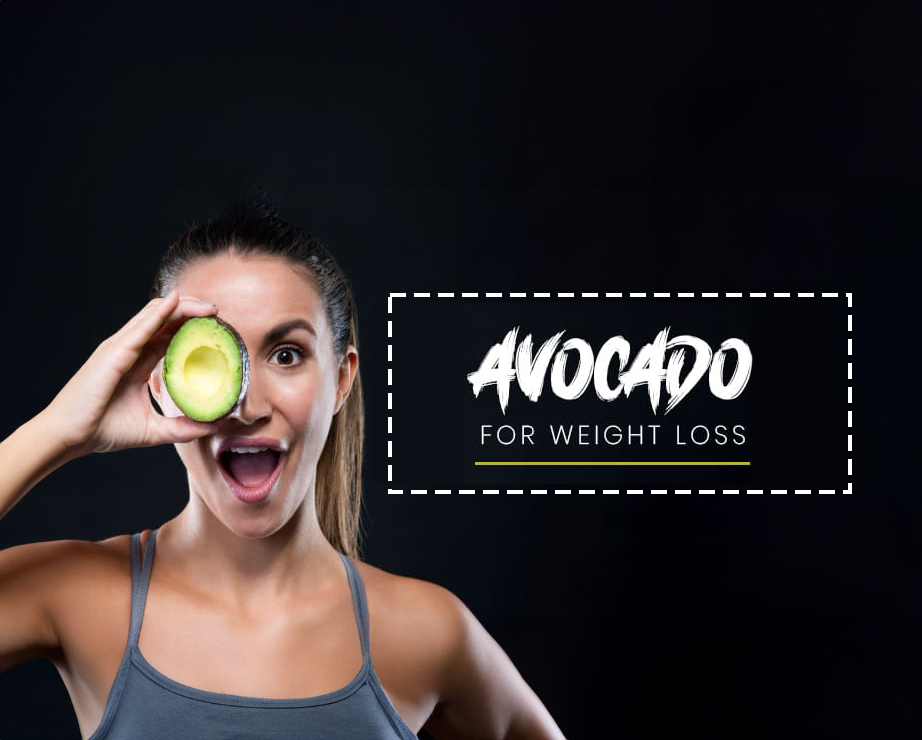
1. Can Avocado Help You Lose Weight?
Thanks to their high nutrient density, fiber, and healthy fats, avocados are an excellent asset in a weight loss diet. Is avocado good for losing weight? Absolutely, but remember, moderation is always the key. Integrated into a balanced, whole-food diet, avocados can be highly beneficial. Each avocado packs about 240 calories, making it essential to monitor your daily calorie intake and portion sizes. While research is still growing, there’s promising evidence that avocados enhance meal satisfaction and could
potentially aid in weight loss. It’s advisable to swap out unhealthy fats for avocados in your diet and to incorporate them into nutritious, low-calorie meals.
Note: To maximize their benefits without overdoing the calorie count, consider using avocados as a spread or in salads. Their creamy texture can also make a great substitute for mayo or sour cream in various dishes, adding flavor without the extra calories.

2. Avocado Nutrition Facts
Avocados are a nutritional treasure trove, offering a blend of vitamins, minerals, healthy fats, and fiber. Just half an avocado, or about 3.5 ounces (100 grams), has roughly 160 calories. In this modest serving, you’ll find an impressive array of nutrients:
- Vitamin K: 18% of the Daily Value (DV)
- Folate: 20% of the DV
- Vitamin C: 11% of the DV
- Potassium: 10% of the DV
- Vitamin E: 14% of the DV
Beyond these, avocados are also a source of niacin, riboflavin, copper, magnesium, manganese, and various antioxidants.
What’s more, avocados are low in carbs yet rich in fiber. Each serving contains about 9 grams of carbs, 7 of which are fiber.
Setting them apart from most fruits, avocados are relatively high in fat, comprising about 15% of their weight.
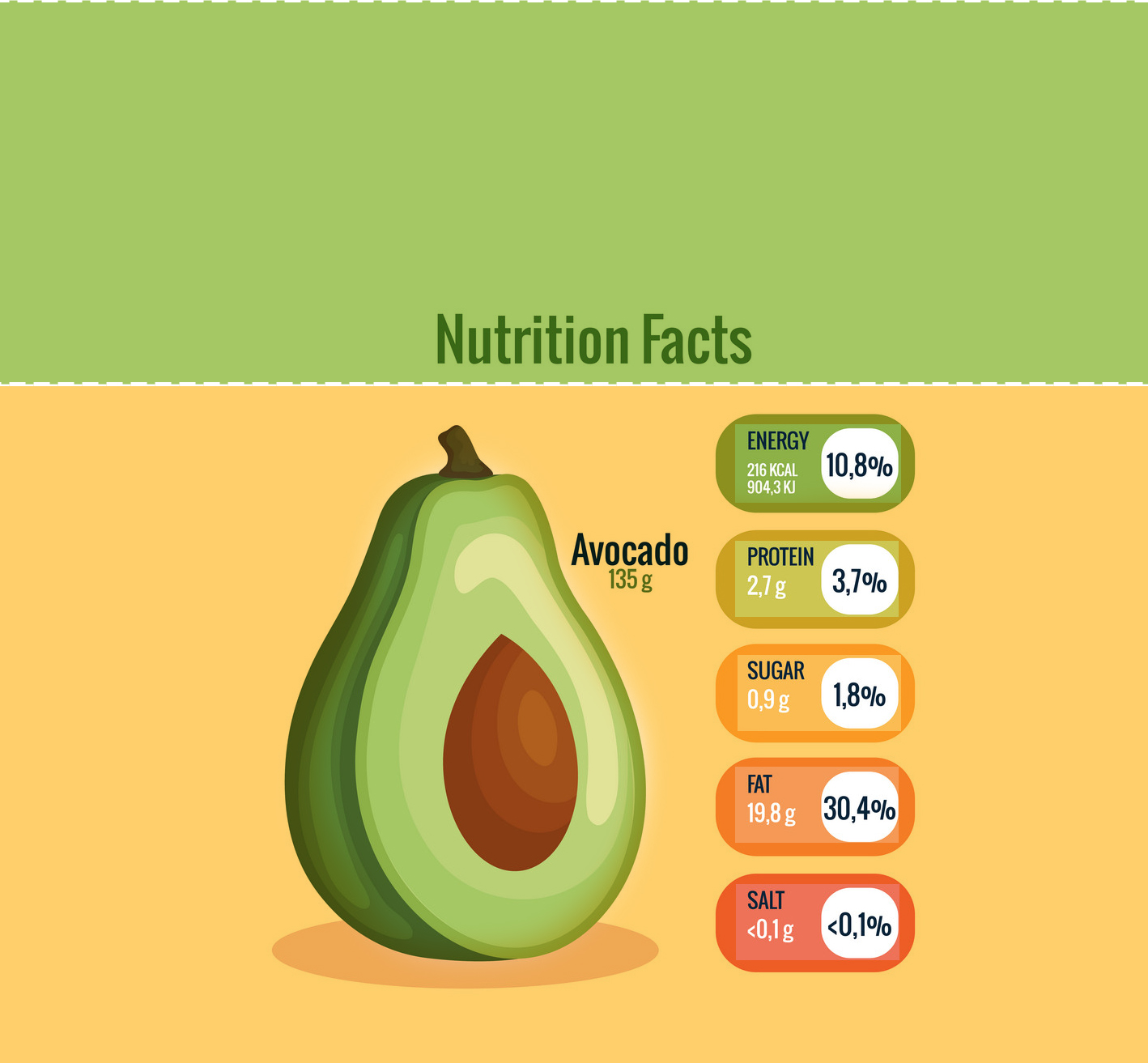
3. Why Is Avocado Good for Weight Loss?
To understand why avocado is beneficial for weight loss, let’s explore the following key reasons.
Reduces Belly Fat
Though research is still evolving, some studies suggest that eating an avocado a day might reduce abdominal fat, specifically the harmful visceral fat associated with heart disease, type 2 diabetes, and other health issues.
The key might lie in the type of fat in avocados – monounsaturated fats. These fats are linked to benefits like increased fat burning, reduced belly fat, and a lower Body Mass Index (BMI). Monounsaturated fats are thought to positively impact your metabolism post-meal, leading to greater fat oxidation and heightened thermogenesis.
Enhanced fat oxidation means your body gets better at breaking down fat for energy. Meanwhile, increased thermogenesis slightly boosts your metabolism, leading to a minor increase in calorie burning.
In summary, regularly including avocados in your diet could potentially help in more efficient belly fat reduction, alongside boosting fat burn and metabolism after meals.
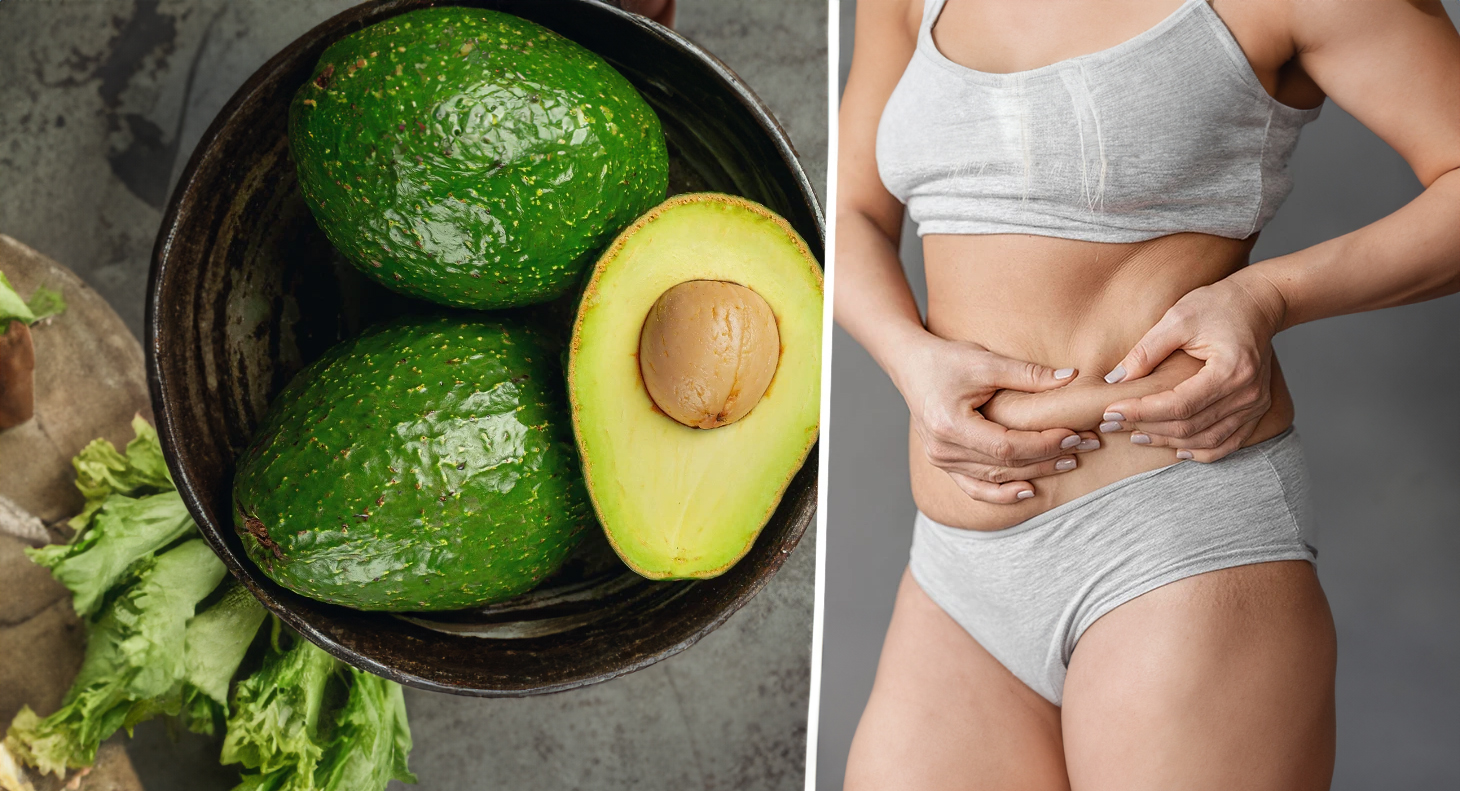
Suppress Appetite
A study found that people who ate a whole avocado for breakfast were less hungry and ate fewer calories for the rest of the day. This is probably because avocados are very filling due to their nutrient content.
Avocados are high in fiber – a large one has about 13 grams, which is almost half of what adults should have in a day. Plus, a whole avocado has just 3.5 grams of net carbs.
Fiber is a carb that your body doesn’t digest quickly. This means it doesn’t really affect your blood sugar levels, which can help control your energy, mood, and hunger.
Fiber also pulls water into your gut, making you feel full and helping your digestive system work well. This can make you feel satisfied longer between meals and might lead to eating fewer calories overall.
Besides fiber, avocados are full of healthy fats that can also help you feel more satisfied. Many people on a keto diet say they feel less hungry when they eat foods like avocados.

Improve Diet Quality
Avocados are really good for your health and eating them often might be the key to staying healthy. The Centers for Disease Control and Prevention (CDC) did a big health study, the National Health and Nutrition Examination Survey (NHANES) and found some interesting things.
Their research, published in the Nutrition Journal, shows that if you eat half an avocado every day, your diet gets a lot better, and you cut your risk of metabolic syndrome by half.

Aids Nutrient Absorption
Vegetables, packed with vitamins and essential nutrients, are the perfect choice for anyone looking to manage their weight. However, to unlock their full potential, adding a bit of fat is key, as researchers have found. Avocado fat stands out in this regard.
A study in Molecular Nutrition & Food Research showed that salads with dressings made from different types of fats, including saturated, monounsaturated (like in avocados), and polyunsaturated fats, affected how well the body absorbed fat-soluble carotenoids. These compounds are known for their role in weight and fat loss. The findings were clear: salads with monounsaturated fat needed the least amount of fat (just 3 grams) for maximum carotenoid absorption. In contrast, dressings with saturated and polyunsaturated fats required much more (20 grams) for the same effect.
Further emphasizing this, a Journal of Nutrition study found that adding avocado to a salad boosted carotenoid absorption by three to five times. To give your salads a nutrient upgrade, consider a spoonful of guacamole, some fresh avocado slices, or a tablespoon of avocado oil in your dressing. This not only enhances the flavor but also boosts nutrient uptake. People who choose dressing on the side might be missing out on these benefits. However, be mindful of your salad dressing choices, as some can counteract the health benefits.
Lowers ‘Bad’ Cholesterol
Forget the old saying about apples; it’s avocados that might be the new star in keeping you healthy, especially when it comes to cholesterol. A study published in the Journal of the American Heart Association involved 45 overweight individuals who were put on different cholesterol-lowering diets for five weeks. There were three diets: one low in fat (24% of total calories from mostly saturated fats) without avocado, another more moderate in fat (34% of total calories from mostly saturated fats) also without avocado, and a third one, also moderate in fat (34%), but this time including one whole Haas avocado daily.
The findings were quite remarkable. The group eating an avocado every day saw a significant decrease in Low-density lipoprotein (LDL) – the ‘bad’ cholesterol, by 13.5 mg/dL compared to the low-fat group. This reduction is substantial enough to notably lower the risk of heart disease. This effect is largely attributed to the monounsaturated fats in avocados, a type of healthy fat that’s effective in lowering high cholesterol, a contributor to insulin resistance, weight gain, and obesity.
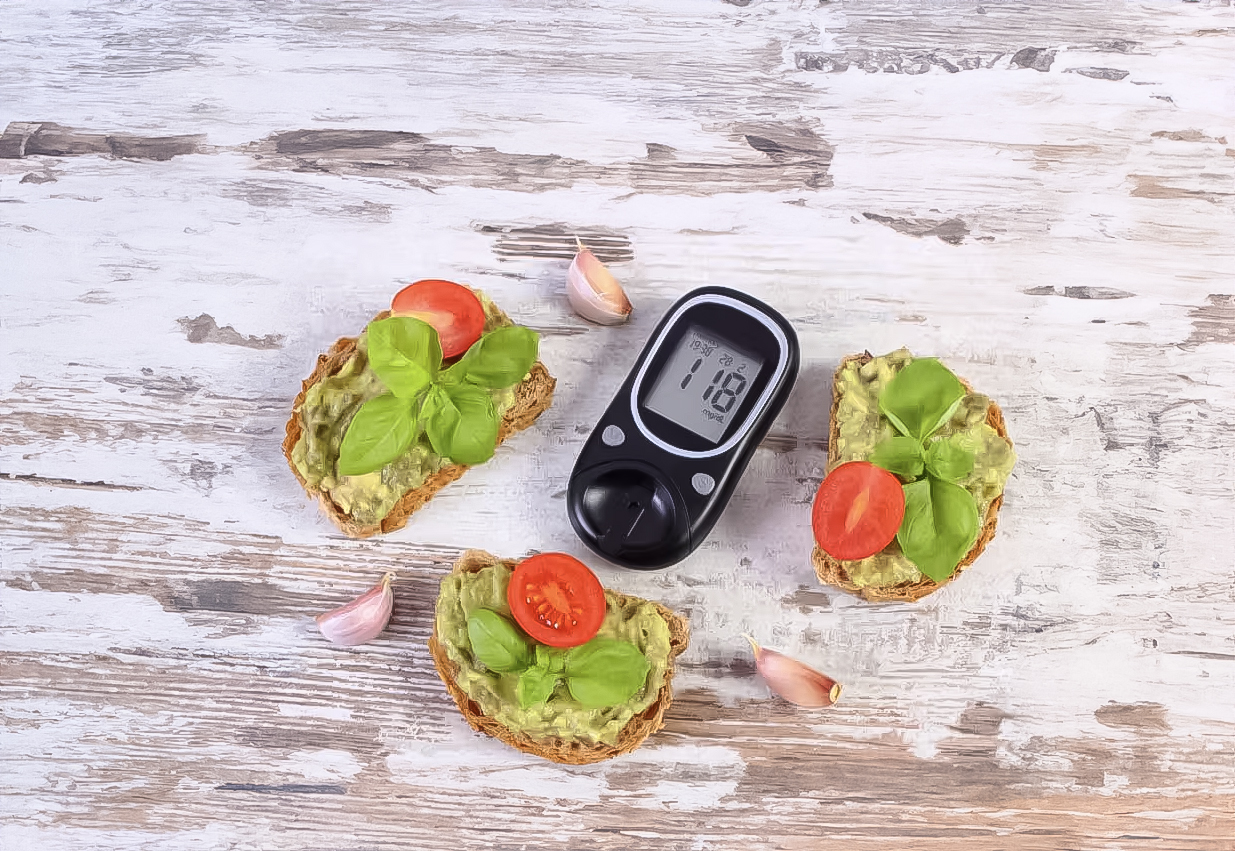
Antioxidants Fight Free Radicals
Inside your body, there’s a battle against free radicals, tiny troublemakers that can harm your cells and DNA. These free radicals are oxygen molecules that are a normal part of metabolism but can cause a lot of damage if they get out of hand, leading to various health issues.
Antioxidants, which are abundant in fresh fruits and vegetables, are great at fighting off some of these free radicals. However, they struggle to reach the mitochondria, the powerhouses of your cells where these radicals often gather. This is a big deal because if your mitochondria aren’t working right, your metabolism slows down. Here’s where the avocado comes in.

May Lower Diabetes Risk
Avocado is not just about good fats; it’s also full of important stuff for your health. It gives you nearly 20 different vitamins, minerals, and nutrients that are great for keeping a healthy weight. This includes 14 grams of fiber, which makes you feel full, and a big part of your daily need for vitamin K. Vitamin K is important for controlling your blood sugar and how your body uses insulin.
There was a big study in Diabetes Care, a science journal, that showed how good vitamin K is. People who ate the most vitamin K (in the top 25% of all the people in the study) had a 19% lower chance of getting diabetes over 10 years than those who ate the least.
Boost Metabolism and Endurance
Pre-workout supplements are popular for giving you an extra energy kick to help you exercise a bit longer. But eating avocados can do the same thing. A study in the American Journal of Clinical Nutrition looked into this. They compared two diets: one high in palmitic acid (a type of fat usually found in saturated fats) and another high in oleic acid (the healthy fat in avocados).
People in the study tried each diet for three weeks. The researchers then checked how much they moved and how fast their body burned energy after eating. The results were pretty interesting. When people ate more oleic acid (like the fat in avocados), they were more active by 13.5% and their bodies burned energy 4.5% faster after meals compared to when they ate more palmitic acid.
So, the bottom line is this: instead of reaching for fried snacks, baked goods, or butter, try eating foods with good fats like avocados or avocado oil. This can give you a natural energy boost and help keep your metabolism going strong, even after your gym session.
4. How Much Avocado A Day for Weight Loss?
Including avocado in your diet can be a smart choice for managing your weight. It’s true that avocados are high in calories due to their fat content, but don’t let that deter you.
A 2022 study in the Journal of American Heart Association found something interesting: people who ate one avocado every day for six months were able to maintain their weight.
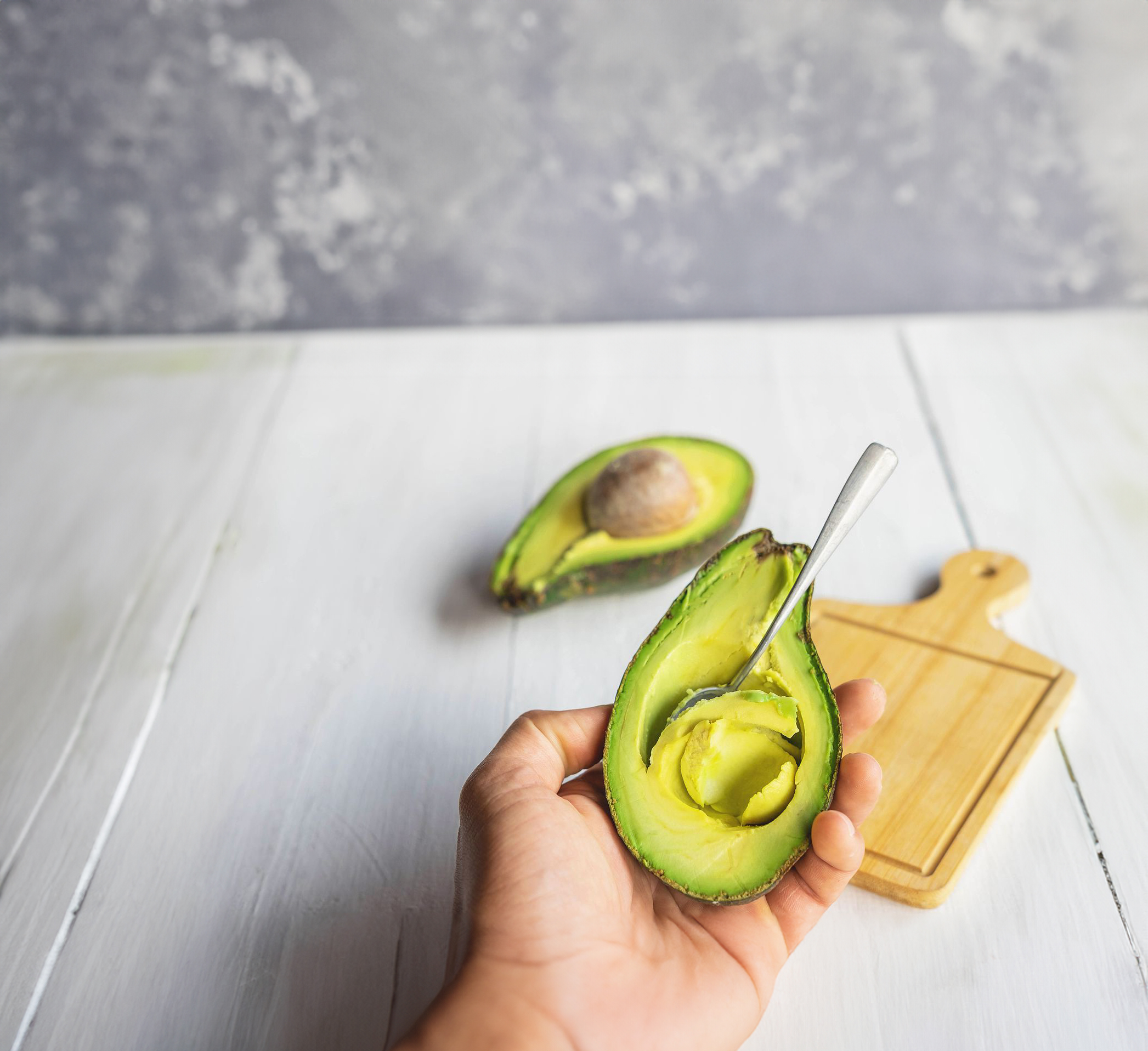
Conclusion
Reflecting on the intriguing question “Can Avocado Help You Lose Weight?” we’ve delved into various studies and research, uncovering the valuable role avocados can play in weight management. Rich in nutrients, healthy fats, and fiber, avocados not only add a delicious touch to meals but also contribute to maintaining a stable body weight.
We’re eager to hear about your personal experiences with avocados in your weight management journey. Have they been a helpful part of your diet? Share your stories with us in the comments, and don’t forget to check out more engaging and informative blogs at HealthConnect for additional health and wellness insights. Join us on your path to a healthier lifestyle!
Source:
fdc.nal.usda.gov
pubmed.ncbi.nlm.nih.gov

Dr. Joyce Slater: Your Guide to Informed Health Choices
Dr. Joyce Slater shines as a distinguished expert in the field of nutrition and public health. Contributing her vast expertise to HealthConnectbc, she embodies a deep-seated passion for enhancing public well-being. As a respected figure in her field. Dr. Slater’s academic journey and professional achievements are nothing short of inspirational.
Holding a significant position as a researcher and educator, Dr. Slater has delved deeply into the intricacies of food literacy and nutritional science. Her work, prominently featured in numerous esteemed scientific publications, underscores her dedication to expanding our understanding of food’s role in health and society.
At the heart of Dr. Slater’s professional ethos is a profound desire to positively impact individual lives through education and research. She often says, “Empowering people with the knowledge to make healthier choices is the most rewarding aspect of my work.” This principle is the cornerstone of her involvement with HealthConnectbc, where she strives to provide reliable and practical health advice.
Dr. Slater’s contributions to HealthConnectbc are multifaceted: academically, she offers insights into the complex world of nutrition and health, enhancing both public understanding and professional practices. Additionally, she is instrumental in guiding and inspiring the next generation of health professionals, thus fostering future excellence in the field.
Juggling rigorous research with her educational duties, Dr. Slater demonstrates an unwavering commitment to her profession. Her approachable nature and genuine concern transcend the confines of academia, touching the lives of everyone she interacts with. Dr. Slater looks forward to continuing her journey of discovery and education, dedicated to the ongoing improvement of public health and nutrition.
At HealthConnectbc, Dr. J. Slater is not just a contributor; she is a guiding light, dedicated to enlightening and motivating individuals towards a healthier and more informed lifestyle.
PUBLISHED ARTICLES
- Food literacy competencies: A conceptual framework for youth transitioning to adulthood (2018)
- Self-perceived eating habits and food skills of Canadians (2016)
- Challenges to acquiring and utilizing food literacy: Perceptions of young Canadian adults (2016)
- Socio-demographic and geographic analysis of overweight and obesity in Canadian adults (2009)
- Sustainable well-being: Concepts, issues, and educational practices (2014)

